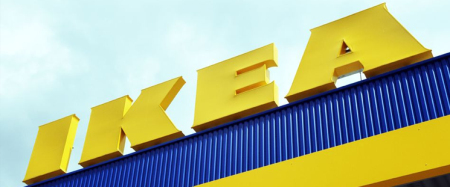Prevention not Cure: Online IPR
By China IPR SME Helpdesk
 我国作为一个人口大国,目前拥有约13多亿人。据统计,截至2016年年底,中国互联网用户已经达到了惊人的7.31亿,约占中国人口的一半多。这个数量是东南亚互联网用户的三倍。根据中国互联网络信息中心(CNNIC)的数据,目前中国互联网用户的比例为53.1%。另据互联网用户增长趋势显示,我国互联网的使用频率将在未来几年继续进一步增长。
我国作为一个人口大国,目前拥有约13多亿人。据统计,截至2016年年底,中国互联网用户已经达到了惊人的7.31亿,约占中国人口的一半多。这个数量是东南亚互联网用户的三倍。根据中国互联网络信息中心(CNNIC)的数据,目前中国互联网用户的比例为53.1%。另据互联网用户增长趋势显示,我国互联网的使用频率将在未来几年继续进一步增长。
目前电子商务在中国蓬勃发展,预计到2020年电商将占到零售总额的25%左右,而在欧洲,这一比例仅仅约为10%。此外,随着互联网普及率、品牌知名度和忠诚度的提升,中国的在线零售必将持续扩大。
毫无疑问我国电子商务的发展前景令人振奋,也为欧洲中小企业提供了在中国发展的好机会。但挑战与机遇同在,侵权问题依然严重。
第一种形式是域名侵权,常见的侵权方式有:1.域名抢注,即注册与公司产品或商标名称相同的域名,目的是将域名以高价出售给品牌所有人。2.虚报:犯罪分子自称为授权经销商,冒名顶替进行商业活动。3.犯罪分子通过电邮等手段获取信用信息和用户名。4.谎称某企业要求注册与你的商标或公司名称相同的域名,引诱你与他们合作。5.注册类似域名。这些域名与合法企业的域名有拼写上的相似,给人一种错觉。
所以,我们建议在中国开展业务之前,最好先在这一潜在市场注册域名。这可以在未来为您节省大量的财力物力。
 China possesses a population of over 1.3 billion people; of these, there were 731 million Internet users in China by the end of 2016 – this is approximately a little over half the population of China and three times the number of Internet users in South-East Asia.
China possesses a population of over 1.3 billion people; of these, there were 731 million Internet users in China by the end of 2016 – this is approximately a little over half the population of China and three times the number of Internet users in South-East Asia.
The share of Internet users in China now equals to 53.1% according to the state-administered China Internet Network Information Centre (CNNIC). Trends also suggest that Internet use in China is set to experience further growth over the coming years.
E-commerce is well developed in China today, and is predicted to account for around 25% of total retail purchases by the end of 2020 , in contrast with about 10% in Europe. Furthermore, as wealth, Internet penetration, brand awareness and loyalty spread, online retail in China is also set to expand.
 What Does This Mean For Your Business?
What Does This Mean For Your Business?
There are undoubtedly many reasons to be cheerful at the prospect of rising e-commerce trends in China. Not only will this provide European SMEs with opportunities to expand in a region with rising consumer demands, but it also offers the chance to do this relatively cheaply, without the start-up costs associated with opening a physical office.
However, there are several challenges that European SMEs should be aware of when establishing their virtual gateway into the China market.
 Domain Name Infringement
Domain Name Infringement
Domain name infringement exists in many forms. The most common ways that third parties tend to infringe domain name/s are:
• Cybersquatting: Registering domain names that are identical to your company’s product or trade mark names, with the purpose of selling domain names back to you (the rightful owner) at a premium price.
• False affiliation: Criminals presenting themselves as authorised resellers.
• Phishing: Attempting to acquire credit information and usernames via electronic communication (fraudulent e-mails containing fake links). The term ‘phishing’ is a portmanteau of ‘password’ and ‘fishing’.
• Slamming: Fraud whereby resellers of domain name registrars contact European companies, claiming that another client of theirs has requested the registration of domain names identical to your trade mark or company name. Their objective is to encourage you to place a domain name registration using their company.
• Traffic diversion: Using a typosquarred domain name to redirect traffic intended for your website.
• Typosquatting: Registering domain names that are either visually similar to your domain name or are mistyped (one key off on the keyboard). E.g. If www.Europe.eu is the domain name, www.europ.eu could be the typosquatted domain (visually similar); or if www.Europe.eu is the domain name, www.Euripe.eu could be the variant (the letter ‘i’ is close to ‘o’ on the keyboard and might thus be a common misspelling). Omitting or doubling characters also counts as typosquatting.
Case Study: IKEA’s Domain Name Dispute In China
 The first foreign domain name dispute in China took place in June, 2000, when Beijing CINET Information Co., Ltd. (CINET) registered the domain name www.ikea.com.cn with the CNNIC.
The first foreign domain name dispute in China took place in June, 2000, when Beijing CINET Information Co., Ltd. (CINET) registered the domain name www.ikea.com.cn with the CNNIC.
Inter Ikea Systems B.V. (IKEA), a world-renowned Dutch home accessories company, already owned several trade mark registrations under the name IKEA in China, and had been using these trade-marks commercially in China for several years. IKEA filed a suit against CINET as soon as the company found out that CINET had been using a domain name incorporating its company name. IKEA requested that CINET’s domain name should be suspended.
Outcome
The Beijing Second Intermediate People’s Court held that since domain names were increasingly related to trade marks with the rise of e-commerce, CINET had acted illegally wherein it knowingly used a well-known trade mark to conduct commercial activity. The use of IKEA’s name was also held to constitute unfair competition and trade mark infringement. Furthermore, the panel discovered that CINET also held several other domain names, many of which used other famous commercial names, including Cartier, Tiffany and Hertz. As a result, CINET was accused of having registered www.ikea.com.cn in bad faith.
This decision has been hailed as a valuable case providing important guidelines in dealing with cyber-squatting in China. It also demonstrates that foreign parties are able to enforce their IP rights in Chinese courts.
Take-Away Messages for EU SMEs
• Register domain names in potential future markets in China and Asia before establishing your business there. This can save considerable time and money later on, and can also act as a value-adding business strategy;
• Domain names in China generally operate under a first-to-file (F2F) system, which grants the right to a domain name to the person who files it first – regardless of the date of its invention;
• To save time and money it is advisable to do some research on domain name arbitration before entering China;
• A domain name registration typically costs EUR 50-100 per year; the price of one domain name dispute typically equals the price of 10 domain name registrations.
Learn how to register a domain name, choose a registrar, and recover an infringed domain name in China using our e-learning module and our guide to online IPR in China.